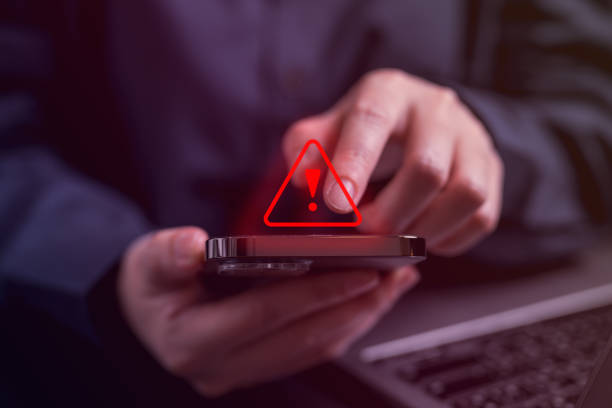Have you ever looked at your phone and wondered, “Who is SRS and why are they calling me?” If so, you’re not alone. Many people receive calls from SRS Company, prompting questions about the nature of these calls and the intentions behind them. This article explores the reasons behind why SRS might be contacting you, what SRS Company is, and how you can manage these communications effectively.
Introduction to SRS Company
Before diving into why they might be calling you, it’s important to understand what SRS Company is. SRS Company, or Service Recovery Solutions, is a business entity that specializes in various services such as debt collection, customer service outsourcing, and business process outsourcing. Knowing the core functions of SRS can give you better insight into the nature of their calls.
Reasons Why SRS Might Be Calling You
When you receive a call from SRS, it could be due to various reasons. Understanding why SRS might be contacting you can help alleviate any concerns and appropriately respond to their inquiries. Here are some common reasons why SRS might reach out to you:
Debt Collection
One of the primary reasons SRS might contact you is for debt recovery. If you have unpaid bills or outstanding debts with companies that SRS represents, they may be reaching out to settle these financial matters. SRS acts as a liaison between creditors and debtors, facilitating the process of debt collection on behalf of the creditor. This could include credit card debts, medical bills, utility bills, or loans.
- Debt Recovery: SRS may contact you to discuss overdue payments and negotiate a repayment plan that suits your financial situation. This could involve providing options for payment arrangements or settlements to resolve the debt.
- Payment Reminder: In some cases, SRS might call to remind you of an overdue payment and provide assistance in arranging for the payment to be made. They may offer guidance on payment methods and deadlines to ensure that the outstanding debt is addressed promptly.
Customer Service Inquiries
SRS also handles customer service for other companies. If there is an issue or follow-up required for a service you use, SRS might contact you on behalf of that company. This could involve troubleshooting technical issues, addressing concerns with a product or service, or providing assistance with account management. SRS acts as an extension of the company’s customer support team, ensuring that inquiries are addressed promptly and efficiently.
- Technical Support: SRS may call to assist you with troubleshooting technical issues with a product or service. This could include problems with software, hardware, or online services, where SRS representatives are trained to provide guidance and solutions.
- Product Assistance: If you’ve purchased a product or service and encounter difficulties or have questions, SRS may reach out to provide assistance. This could involve helping you navigate through product features, offering troubleshooting tips, or facilitating product returns or exchanges.
Business Communication
Sometimes, SRS calls are simply for business communications. This could involve confirming details of a transaction, updating records, or verifying information. SRS may contact you to confirm an appointment, schedule a delivery, or provide important updates regarding a service you have subscribed to. These calls are typically routine and aim to ensure smooth communication between the company and its customers.
- Transaction Update: SRS might call to inform you about the status of a transaction you’ve initiated, such as confirming a purchase, updating shipping information, or providing tracking details for a delivery.
- Account Verification: In certain cases, SRS may contact you to verify personal information to update your account details for security purposes. This could involve confirming your identity, updating contact information, or addressing any discrepancies in your account records.
How to Identify a Legitimate Call from SRS
Receiving a call from an unknown number can be unsettling, especially if it’s from a company like SRS. However, there are steps you can take to verify the legitimacy of the call. Here’s how you can identify whether a call from SRS is legitimate:
Caller Identification
Legitimate SRS calls will often provide you with a caller ID that matches their known numbers or company name. Before answering the call, check the caller ID to see if it aligns with any previous communications you’ve had with SRS or their affiliated companies.
- Caller ID Matching: If the caller ID matches the contact information provided by SRS in previous correspondences or on their official website, it increases the likelihood that the call is legitimate.
- Company Name: Look for the name of the company (e.g., SRS) displayed on the caller ID. If it’s consistent with the company you’re expecting to hear from, it adds credibility to the call.
- Known Numbers: Some companies, including SRS, have specific phone numbers that they use for customer communication. If the incoming call matches one of these known numbers, it’s more likely to be legitimate.
Purpose of Call
A genuine caller from SRS should be able to explain clearly why they are contacting you and provide details of any accounts or issues involved. When answering the call, pay attention to the caller’s explanation for contacting you.
- Clear Explanation: The caller should provide a clear and coherent explanation for why they are contacting you. This could include mentioning specific accounts, transactions, or services associated with SRS.
- Account Verification: If the caller mentions specific details about your account or recent transactions, it indicates that they have access to relevant information, which is characteristic of a legitimate call.
- Issue Resolution: If the purpose of the call is to address a specific issue or inquiry you’ve raised previously, the caller should be able to provide relevant information or assistance to resolve the matter. They may offer solutions or further steps to take to address your concerns.
Verification Process
If you’re still unsure about the legitimacy of the call, you can take additional steps to verify the caller’s identity and the purpose of the call.
- Ask for Caller’s Information: Politely ask the caller for their name, department, and contact information. Legitimate SRS representatives should be willing to provide this information to reassure you of their authenticity.
- Contact SRS Directly: If you have doubts about the call, you can independently verify the caller’s identity by contacting SRS directly through their official customer service channels. Use the contact information provided on their website or in previous communications to ensure you’re reaching the legitimate SRS team.
- Documentation Review: If the caller claims to represent SRS, ask for documentation or reference numbers related to the issue they’re calling about. Legitimate callers should be able to provide this information to help you verify their identity and the validity of the call.
What to Do If You Receive a Call from SRS

If you determine that a call from SRS is legitimate, it’s essential to respond appropriately to ensure your safety and address any concerns effectively. Here are some steps you can take when receiving a call from SRS:
Listen Carefully
Upon receiving a call from SRS, it’s crucial to listen carefully to the caller’s explanation for contacting you. Pay attention to the reason for the call and what is being requested of you. This will help you understand the nature of the conversation and respond appropriately.
- Active Listening: Engage in active listening by focusing on the caller’s words, tone, and any specific information they provide. Avoid distractions and give the caller your full attention to grasp the details of the conversation accurately.
- Note-taking: Consider taking notes during the call to jot down important points, such as the caller’s name, the purpose of the call, and any actions or instructions mentioned. These notes can help you remember key details and reference them later if needed.
Verify Information
Before providing any personal information or taking action based on the caller’s request, it’s important to verify that the call is legitimate. Avoid sharing sensitive information such as your Social Security number, credit card details, or passwords unless you are certain of the caller’s identity.
- Caller Confirmation: Ask the caller to confirm their identity by providing specific details related to your account or recent interactions with SRS. This could include referencing recent transactions, account numbers, or other relevant information.
- Contact Verification: Double-check the caller’s contact information against official records or communications from SRS. If in doubt, contact SRS directly through their official customer service channels to confirm the legitimacy of the call.
- Third-party Validation: If the caller claims to represent a company or organization, consider independently verifying their affiliation through online research or contacting the company directly through their official channels. This can help confirm the authenticity of the call and ensure that you’re dealing with a legitimate representative.
Ask Questions
If you’re unsure about the purpose of the call or the information being requested, don’t hesitate to ask clarifying questions. Seeking clarification can help ensure that you fully understand why SRS is contacting you and what steps, if any, need to be taken.
- Clarification Queries: Ask the caller to provide more details about the reason for the call, the specific account or issue they’re referencing, and any actions they’re requesting you to take. This can help you make informed decisions and avoid misunderstandings.
- Request Documentation: If the caller is requesting sensitive information or actions that require your verification, ask for documentation or confirmation in writing. Legitimate callers should be able to provide official documentation to support their requests.
Take Action Responsibly
Once you’ve confirmed the legitimacy of the call and understand the requested actions, take appropriate steps to address the matter responsibly.
- Follow Instructions: If the caller provides instructions or requests specific actions from you, follow them diligently while exercising caution and ensuring the security of your personal information.
- Document Conversations: Keep a record of the details discussed during the call, including the caller’s name, contact information, and any instructions or agreements made. This documentation can serve as a reference in case of future inquiries or disputes.
- Resolution Follow-up: After addressing the issue discussed during the call, follow up as necessary to ensure that any actions or agreements are properly executed. This may involve monitoring account updates, confirming payment arrangements, or seeking additional assistance if needed.
Protecting Yourself from Scam Calls
While many calls from SRS are legitimate and serve important purposes, it’s crucial to remain vigilant against possible scams. Here are some proactive measures you can take to protect yourself from scam calls:
Do Not Provide Personal Information
One of the most effective ways to safeguard yourself against scam calls is to be cautious about sharing personal information over the phone. Unless you are absolutely certain of the caller’s identity and the legitimacy of the call, refrain from disclosing sensitive details such as your Social Security number, credit card information, or passwords.
- Sensitive Information: Avoid sharing sensitive information, such as your full name, address, date of birth, or financial details, unless you have initiated the call or can verify the caller’s authenticity through trusted channels.
- Verification Practices: Implement strict verification practices when dealing with unfamiliar callers or unexpected requests for personal information. Request specific details or documentation to validate the caller’s identity before divulging any sensitive data.
Be Skeptical of Unexpected Calls
If you receive a call from SRS or any other organization unexpectedly, approach it with caution. Scammers often use tactics such as impersonating legitimate companies to deceive individuals into sharing confidential information or making fraudulent payments.
- Caller Identification: Verify the caller’s identity by asking for their name, department, and the purpose of the call. Legitimate callers should be able to provide this information without hesitation.
- Caller Tactics: Be wary of high-pressure tactics or urgent requests for immediate action. Scammers may use fear or intimidation to manipulate individuals into complying with their demands.
Report Suspicious Calls
If you encounter a call that seems suspicious or potentially fraudulent, take action immediately to protect yourself and others from falling victim to scams. Reporting suspicious calls can help authorities investigate and prevent further fraudulent activities.
- Hang Up: If you suspect that a call is fraudulent, hang up immediately without providing any personal information or engaging further with the caller. Ending the call promptly can help prevent potential harm or exploitation.
- Contact SRS Directly: After hanging up, contact SRS directly using a verified phone number obtained from their official website or previous communications. Inform them about the suspicious call and inquire whether they were attempting to reach you.
- Report to Authorities: Consider reporting the suspicious call to relevant authorities, such as the Federal Trade Commission (FTC) or local law enforcement agencies. Providing detailed information about the call can aid in investigations and protect others from similar scams.
How to Stop Unwanted Calls from SRS

If you find yourself receiving unwanted calls from SRS and wish to put an end to them, there are several actions you can take to mitigate the issue:
Direct Request
One of the most straightforward approaches to stopping unwanted calls from SRS is to directly request that they remove your number from their call list. Here’s how you can do it:
- During a Call: The next time you receive a call from SRS, politely inform the caller that you no longer wish to receive calls from them and request that they remove your number from their call list. Be clear and assertive in your request to ensure that it is properly addressed.
- Confirmation: Ask the caller for confirmation that your number has been removed from their call list. This helps ensure that your request is acknowledged and acted upon accordingly.
- Follow-up: If you continue to receive calls from SRS after making a direct request, follow up with them to reiterate your request and escalate the matter if necessary. Document your communications for future reference.
Registration on Do-Not-Call Lists
Another effective way to prevent unwanted calls, including those from SRS, is to register your phone number on national do-not-call lists. Here’s how you can do it:
- National Do-Not-Call Registry: Register your phone number on the National Do-Not-Call Registry maintained by the Federal Trade Commission (FTC) in the United States. This registry allows consumers to opt out of receiving telemarketing calls from legitimate businesses.
- Online Registration: Visit the official website of the National Do-Not-Call Registry and follow the instructions to register your phone number. You can register both landline and mobile numbers, and the registration is free of charge and valid indefinitely, unless you choose to remove your number from the list.
- Verification: After registering your number on the do-not-call list, monitor your incoming calls to ensure that unwanted calls, including those from SRS, are significantly reduced. While registration on the do-not-call list does not completely eliminate all unwanted calls, it can significantly reduce the frequency of such calls over time.
- Opt-out Options: Some companies, including SRS, may have their own opt-out procedures in addition to the national do-not-call list. Explore the company’s website or contact their customer service department to learn about any opt-out options they offer and follow the necessary steps to opt out of receiving future calls.
Legal Recourse
In cases where unwanted calls persist despite your efforts to stop them, you may explore legal recourse options available to you:
- Cease-and-Desist Letter: Consider sending a formal cease-and-desist letter to SRS requesting that they cease all communication with you. This letter should clearly outline your request and warn of potential legal action if the unwanted calls continue.
- Consult Legal Professionals: If the unwanted calls persist or escalate to harassment, seek guidance from legal professionals who specialize in consumer protection laws. They can advise you on your rights and options for taking legal action against SRS or any other party responsible for the unwanted calls.
Legal Considerations of SRS Calling Practices
Understanding the legal framework within which SRS operates is crucial for both consumers and the company itself. Here’s a detailed overview of the legal considerations associated with SRS calling practices:
Compliance with Laws
SRS, like any other business entity, is bound by various laws and regulations that govern its operations. Compliance with these laws is essential to ensure fair and ethical business practices. Some key laws that impact SRS calling practices include:
- Fair Debt Collection Practices Act (FDCPA): The FDCPA is a federal law that sets guidelines for how debt collectors, including agencies like SRS, can conduct business. It prohibits abusive, deceptive, and unfair practices in the collection of debts and outlines consumers’ rights in dealing with debt collectors.
- Telephone Consumer Protection Act (TCPA): The TCPA regulates telemarketing practices, including restrictions on unsolicited calls, automated dialing systems, and prerecorded messages. SRS must comply with TCPA regulations when making outbound calls to consumers.
- Consumer Protection Laws: Various state and federal consumer protection laws may also apply to SRS calling practices, depending on the nature of the calls and the jurisdiction in which they operate. These laws aim to protect consumers from unfair or deceptive business practices.
- Privacy Laws: Additionally, privacy laws such as the Health Insurance Portability and Accountability Act (HIPAA) may apply if SRS is handling sensitive personal information, such as medical debt. Compliance with these laws is crucial to safeguarding consumers’ privacy rights.
Rights as a Consumer
As a consumer, knowing your rights when dealing with debt collectors or telemarketers can empower you to assert your rights and protect yourself from potential abuses. Here are some key rights you have when interacting with SRS or similar entities:
- Right to Verification: Under the FDCPA, consumers have the right to request verification of a debt within 30 days of receiving a validation notice from a debt collector like SRS. This allows consumers to confirm the accuracy and validity of the debt being pursued.
- Right to Cease Communication: Consumers also have the right to request that a debt collector, such as SRS, cease further communication about a debt. Once a consumer makes a written request to cease communication, the debt collector must comply, with certain exceptions outlined in the FDCPA.
- Right to Privacy: The TCPA provides consumers with the right to opt out of receiving telemarketing calls by registering their phone numbers on the National Do-Not-Call Registry. SRS must honor consumers’ requests not to receive future telemarketing calls.
- Right to Fair Treatment: Consumers have the right to be treated fairly and respectfully by debt collectors, regardless of their financial circumstances. Harassment, threats, or other abusive practices by debt collectors, including SRS, are prohibited under the FDCPA.
Implications for SRS
Ensuring compliance with relevant laws and respecting consumers’ rights is not only a legal obligation for SRS but also crucial for maintaining a positive reputation and fostering trust with consumers. Failure to adhere to legal requirements can result in legal action, regulatory penalties, and reputational damage for SRS.
- Training and Compliance Programs: SRS should implement comprehensive training programs for its employees to ensure awareness of and adherence to relevant laws and regulations governing calling practices. Regular compliance audits and monitoring can help identify and address any potential compliance issues proactively.
- Ethical Considerations: Beyond legal requirements, SRS should also consider ethical considerations in its calling practices. Prioritizing transparency, fairness, and respect for consumers’ rights can enhance trust and credibility in SRS’s interactions with consumers.
Conclusion
Understanding “who is SRS and why are they calling me” can alleviate concerns and help you manage communications more effectively. By being informed about what SRS Company is and taking appropriate actions, you can handle these calls with confidence and protect your privacy.
Navigating the calls from SRS Company doesn’t have to be a distressing experience. With the right information and approaches, you can ensure that your interactions are as positive and productive as possible. Whether it’s verifying the legitimacy of a call, understanding your rights, or knowing how to stop unwanted communications, being equipped with knowledge is your best defense.
FAQ
SRS may be trying to reach a previous owner of your phone number or have incorrect information. It’s best to clarify this with them directly.
Yes, you can block their number using your phone’s call-blocking feature or through your service provider.
Report the issue to consumer protection agencies or consult legal advice if the calls do not cease after your request.

